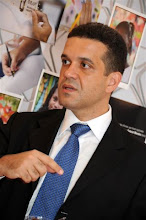- Back to Home »
- Betting the fazenda
Mar 6th 2008 SÃO PAULO
From The Economist print edition
SETTLE down at one of São Paulo's sushi bars and before long you will overhear a discussion about a start-up business making energy from obscure weeds, or some other bright idea for relieving members of the country's growing middle class of their disposable income. A field study of this kind displays a strong sample bias, but the point is clear: Brazil does not lack go-getters. Yet according to a more thorough survey backed by the International Finance Corporation (IFC), a sister organisation of the World Bank, Brazilian entrepreneurs are a strikingly different breed to their peers in Russia and China.
Overall, some 82% of entrepreneurs in all three countries came from families with at least one other entrepreneur. They also tended to be taller than the average. But there the similarities end. In particular, Brazilian entrepreneurs seem to have a much lower appetite for risk.
The researchers measured this by offering interviewees hypothetical bets of varying risk and reward, and offering a choice between cash now or more money at a later date. The entrepreneurs in the sample were no more risk-taking than other Brazilians, and were also more likely to retire if offered a windfall than their peers elsewhere.
Perhaps this lack of staying power is because there are many more pleasant things to do in Brazil than work. But why should Brazilians be so risk-averse? Simeon Djankov, one of the study's authors, hypothesises that in real life Brazilian entrepreneurs run bigger risks than those elsewhere. Starting a business takes 152 days and requires 18 different procedures, according to the IFC's annual worldwide “Doing Business” study. It takes 2,600 hours for a medium-sized business to keep up with its taxes each year. The same hypothetical business would pay 69% of its second-year profits in tax, if it played by the rules and did not receive special tax breaks.
Brazilian entrepreneurs show an unsurprising willingness to bend the law. “Essentially what determines good entrepreneurship in Brazil is the ability to navigate around the bureaucracy,” suggests Mr Djankov. Eduardo Giannetti da Fonseca, an economist, concurs: “If Bill Gates had started Microsoft in a garage in Brazil, it would still be in the garage.” Harder to explain than why Brazil's entrepreneurs are as they are is why they exist at all.












